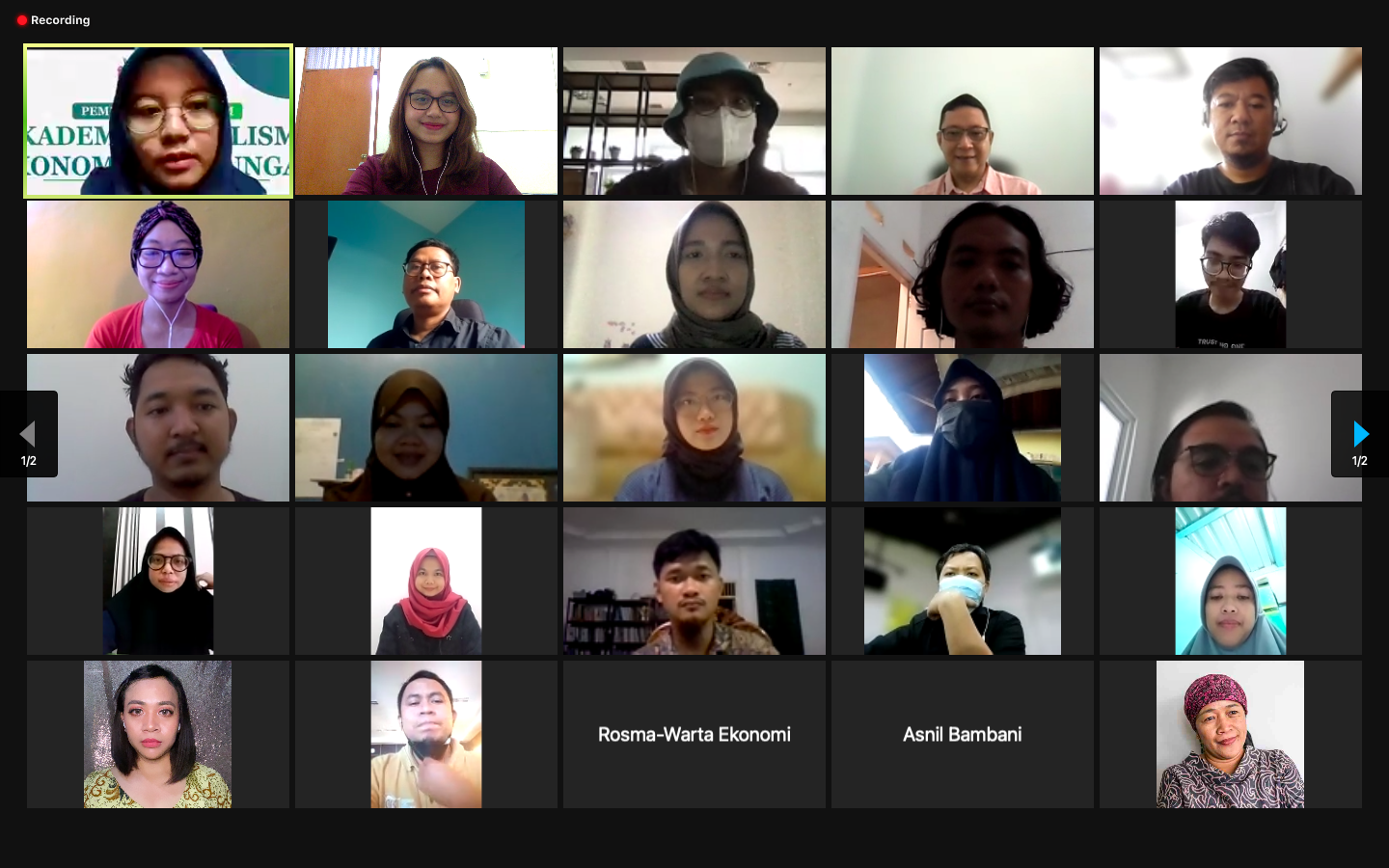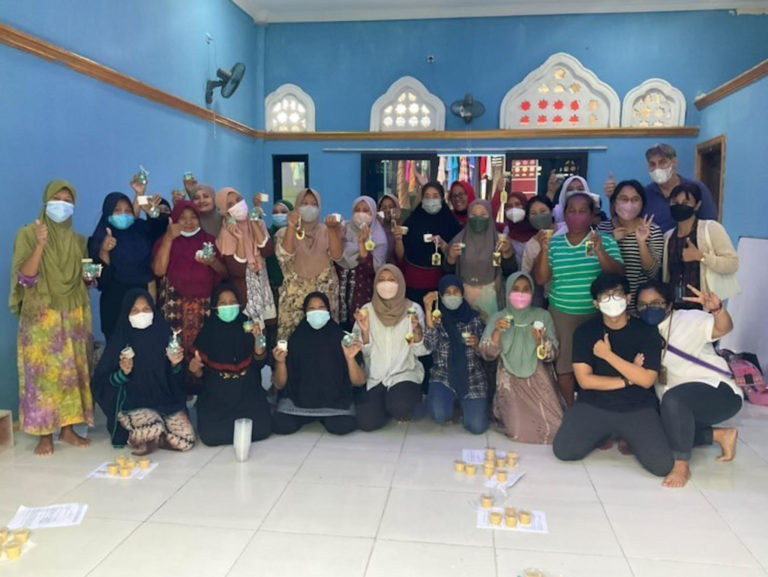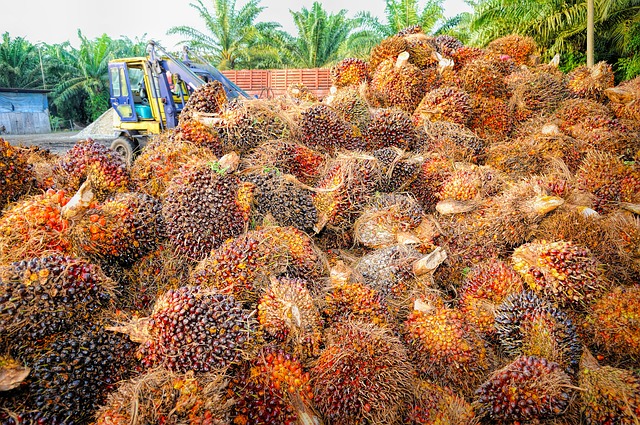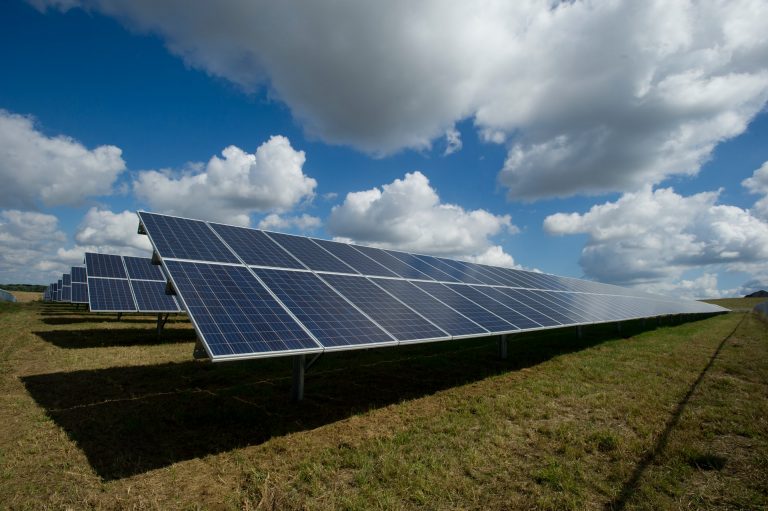Traction Energy Asia along with the Alliance of Independent Journalists (AJI) opened the Academy of Economic and Environmental Journalism program on October 26, 2021. This academy is the first academy in Indonesia that focuses on improving the ability of national or local journalists to integrate economic topics into environmental issues and vice versa. Tommy Pratama (Executive Director of Traction Energy Asia), Ika Ningtyas (Secretary General of AJI), facilitators from AJI, and 20 academy participants attended the opening ceremony.
Tommy Pratama explained the purpose of establishing the Academy, “together with experts from various related fields, we designed this academy with the aim of increasing the capacity of journalists in Indonesia to cover environmental issues from an economic perspective, as well as to see the impact of development policies in Indonesia on environmental and economic aspects.”
Experts who helped develop the curriculum for the academy include Prof. Damayanti Buchori from Bogor Agricultural University as an environmental expert, Dr. Alin Halimatussadiah from Universitas Indonesia as an environmental economist, and Mardiyah Chamim as a senior journalist. The academy’s curriculum includes workshops, scholarships, mentoring, and publication of works. The first phase of the academy includes 18 online and 2 offline sessions from October 2021 to the end of November 2021.

The implementation of the Academy of Economic and Environmental Journalism is also expected to form and instill an environmental perspective to fellow journalists from the economic editorial desk. “This perspective will have an impact on the reporting of fellow journalists to be more critical of economic policies carried out by the central government, regional governments, as well as on economic projects funded by investors,” added Ika Ningtyas.
Information and knowledge that harmonizes economic issues with the environment needs to be included in the agenda of the mass communication media in order to inform and involve the public in this critical issue. Thus, economic journalists who often deal with macroeconomic issues also need to have an environmental perspective to be able to see the overall relationship between the environmental, economic, and social sectors.
Unfortunately, the results of a survey of media coverage conducted over the last three months by AJI shows that economic and business reporting in the mass media is still dominated by narratives that only focus on finance and economic growth, with little or no reference to the substantial environmental and social costs.
Ignorance of the environmental and social costs of economic growth has been the main contributor to the three global crises that we are currently experiencing; global warming/climate change, loss of nature and biodiversity, and the Covid-19 pandemic. As one of the pillars of democracy, Indonesia’s mass media must be equipped with the knowledge and capacity to be able to challenge the ‘development at all costs’ paradigm by reporting on the full costs to the environment, to nature, and to society, and to raise the voices of marginalized communities who are usually the first to suffer the environmental impacts of economic growth.
It is hoped that the academy activity can increase the reporting capacity of economic and environmental issues for the journalist participants to increase their capacity. In the longer term, the capacity to cover development and economic news that also considers environmental aspects also supports journalists in assisting the Government of Indonesia to achieve its commitments to reduce the greenhouse gas emissions that are causing the world’s climate to change, as well as its sustainable development goals.






